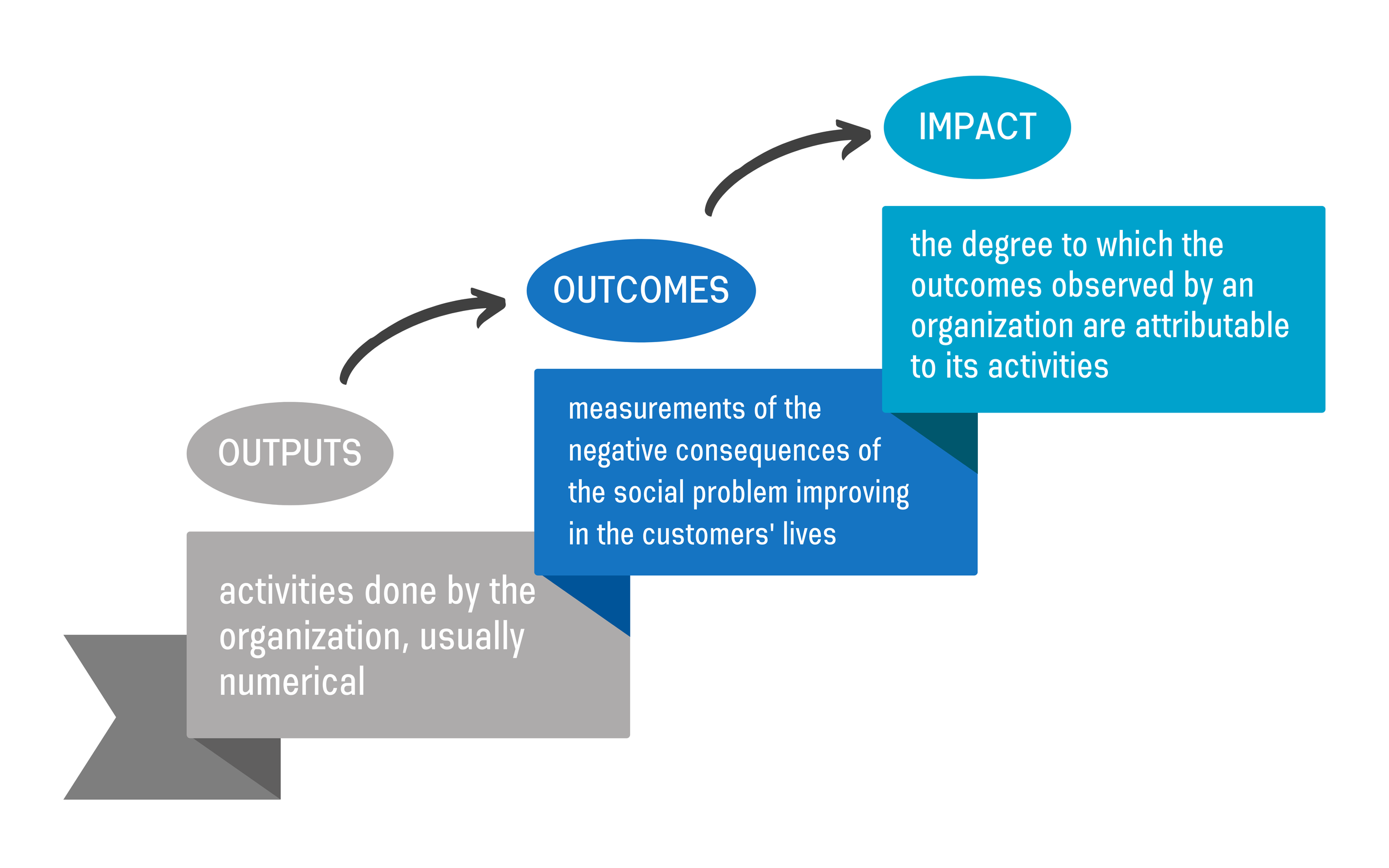The power of measurement (Outputs, Outcomes, Impact)
Here at the Ballard Social Impact Center, we use specific terminology when referring to the results produced by an Social Problem Solving Organization (SPSO).
Outputs: These are the activities done by the SPSO. The number of water wells constructed by a poverty alleviation organization would be an output.
Outcomes: Outcomes are measurements of the negative consequences of a social problem improving in the customers’ lives. For instance, outcomes would be the degree to which the water wells reduced the number of water-borne diseases in a given community.
Impact: This is the degree to which the outcomes observed by a SPSO are attributable to its activities. The impact of the poverty alleviation organization is the degree to which the reduction of water-borne diseases is attributable to its efforts. While the organization may construct dozens of wells and observe that water-borne diseases are less prevalent in the community, this improvement could be attributable to newly constructed medical clinics, distribution of water filtration straws, or some other activities that are not part of the organization’s efforts.
These terms illustrate the trade-off between the difficulty of obtaining knowledge and the value of this knowledge.
Outputs are relatively simple to obtain, but they are often based only on theory of what is effective. If the outputs counted do not lead to meaningful change, the results are meaningless.
Outcomes are more difficult to obtain because they measure the observed effects of a SPSO’s activities rather than activities themselves. Less than 20%, maybe even less than 15%, of SPSOs measure outcomes. If the observed outcomes are not attributable to the SPSO's activities, the results are meaningless.
Impact is difficult to measure and typically requires carrying out a randomized control trial or some other form of controlled analysis. This is the gold standard of measurement because results are proven.
So, why should SPSOs expend additional time and resources in measuring their results? Donors and investors desire to see results before handing over money. Vetting organizations and certifications services require results before giving their stamp of approval. But more importantly, studies have proven that simply attempting to track activities leads to greater impact. When SPSOs commit to measuring results, they demonstrates transparency, accountability, and a gritty determination to move the needle on social problems.

